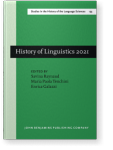Chapter 5
Walter Benjamin’s idea of language
The German literary critic, art critic and philosopher of language Walter Benjamin (1892–1940) has
in many ways struggled with the question how language manifests itself in art, epistemology or
literature. In posthumously published fragments, Benjamin shows how his restless mind has produced texts in which he
has tried to connect the religious (Judaic) tradition with the ruinous appearance of an ideal language in names,
trying to understand and explain the imperfection of language, also in translations between languages. Benjamin has
covered this ruinous world in an allegoric view of language as it was done in Baroque allegories (the
vanitas) showing itself in mourning plays,, hoping for a new, better world. In a way Benjamin’s
concern with language shows how language is fragmentized in daily speech in which only the communicative function has
survived. The ‘divine’ dimension or word can only allegorically be considered to be relevant to this communicative
function.
Article outline
- 1.Introduction
- 2.On the German mourning play: The role of language
- 3.Benjamin’s theory of language: “On language as such and on the language of Man”
- 4.The moment of “beginning”
- 5.An example: On translating (the consequences of Benjamin’s theory of language)
- 6.Finally
-
Notes
-
References
This content is being prepared for publication; it may be subject to changes.
